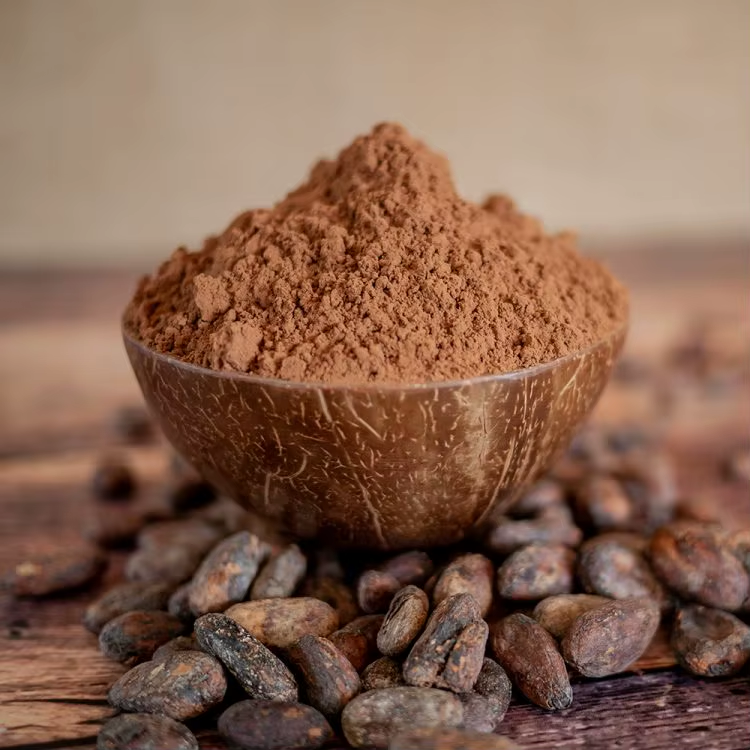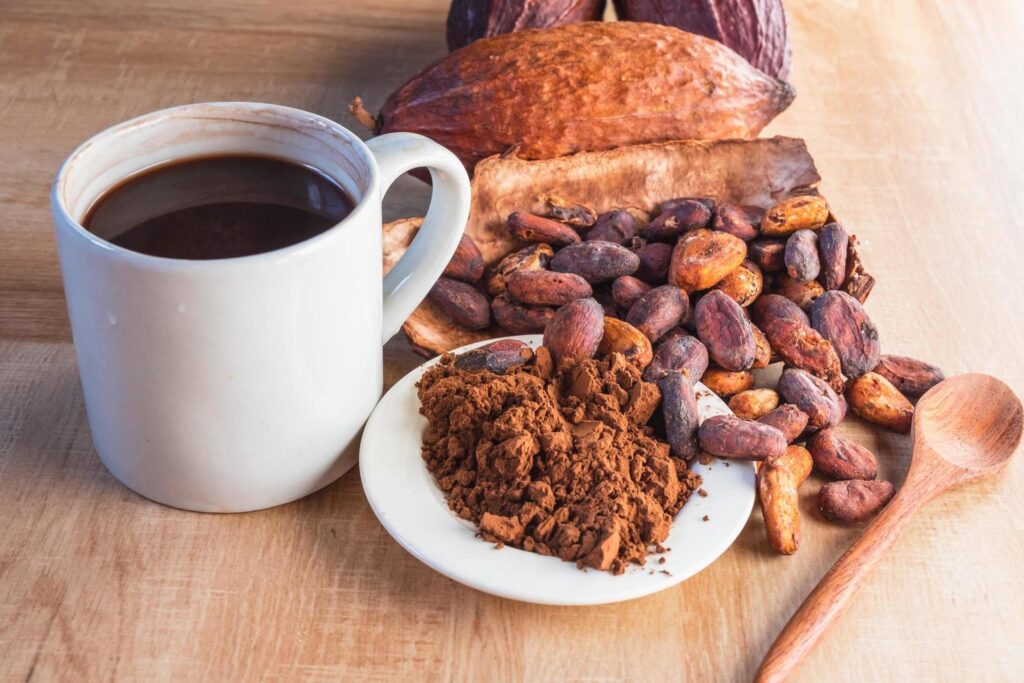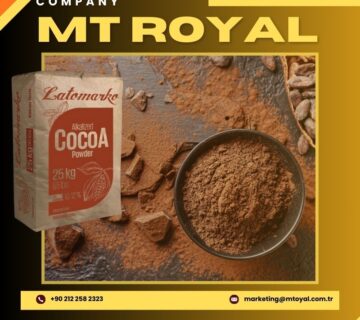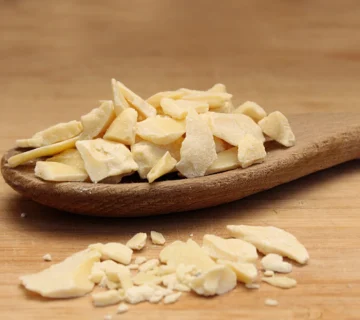In Saudi Arabia’s booming chocolate and confectionery industry, the difference between a good product and a great one often comes down to one ingredient: cocoa powder. For manufacturers, sourcing a reliable natural cocoa powder supplier is not just a procurement decision—it’s a strategic move that directly affects product quality, production efficiency, and cost management. From rich, velvety chocolate bars to aromatic beverages and confections, every batch depends on cocoa powder that behaves predictably under industrial conditions.
In our experience supplying manufacturing facilities across the region, we’ve observed that the right supplier can significantly reduce downtime, ensure consistent flavor profiles, and improve operational performance. This comprehensive guide walks factory owners, production managers, and procurement officers through everything they need to know about sourcing natural cocoa powder in Saudi Arabia, including industry insights, actionable advice, and supplier considerations.
Understanding Natural Cocoa Powder
Before exploring suppliers, it’s important to define what natural cocoa powder is and how it differs from other cocoa types.
Natural cocoa powder is derived from roasted cocoa beans that are processed without alkalization. This preserves the cocoa’s natural acidity, color, and flavor profile. Unlike alkalized or Dutch-processed cocoa, natural cocoa powder has:
- Stronger acidity: Typically a pH of 5–6, contributing to a bright, tangy flavor.
- Lighter brown color: Ideal for traditional chocolate and baking applications.
- Distinctive cocoa flavor: Retains natural cocoa notes, essential for artisanal or high-quality products.
For industrial manufacturers, the purity and consistency of natural cocoa powder are crucial. Variations in pH, fat content, or particle size can affect product viscosity, mixing behavior, and final taste.
Why Choosing the Right Supplier Matters
Selecting a natural cocoa powder supplier in Saudi Arabia goes beyond price considerations. Here are key reasons why a reliable supplier is a strategic advantage:
- Consistent Quality: Industrial processes require cocoa powder that behaves predictably batch after batch.
- Supply Chain Reliability: Unexpected delays or shortages can halt production and increase operational costs.
- Regulatory Compliance: Cocoa suppliers must adhere to local and international food safety standards (GMP, HACCP, ISO).
- Customization Options: Some manufacturers need tailored cocoa powder specifications, such as fat content, particle size, or flavor profile.
- Technical Support: Experienced suppliers provide insights for optimizing recipes and production efficiency.
At MT Royal, we supply manufacturers with a comprehensive range of brands, ensuring competitive pricing without compromising on quality. We’ve seen factory managers benefit immensely from our proactive support and consistent delivery schedules.
Common Pitfalls in Industrial Cocoa Procurement
Even experienced production managers can encounter challenges when sourcing natural cocoa powder. Some common pitfalls include:
- Ignoring particle size consistency: Variations can affect mixing, mouthfeel, and final product appearance.
- Overlooking moisture content: High moisture can lead to clumping and microbial growth.
- Failing to verify supplier certifications: Regulatory compliance is essential for food safety and export requirements.
- Focusing solely on price: Low-cost cocoa can compromise quality, increasing waste or customer complaints.
Being aware of these pitfalls allows procurement teams to make informed, strategic decisions.
Benefits of Working with Experienced Suppliers
Partnering with an established supplier like MT Royal provides multiple advantages:
- Access to Multiple Brands: Including premium European options such as Latamarko, known for Spanish engineering and high-quality standards.
- Technical Expertise: We guide you on optimal storage, handling, and formulation adjustments.
- Bulk Supply Reliability: Ensures uninterrupted production even during peak demand.
- Customized Solutions: Tailored cocoa powders to suit specific industrial applications.
How to Evaluate Natural Cocoa Powder Suppliers
When assessing potential suppliers in Saudi Arabia, consider the following criteria:
1. Quality and Consistency
Request samples and test for pH, fat content, moisture levels, and flavor profiles. Consistency is critical for large-scale production.
2. Certifications and Compliance
Ensure suppliers adhere to international food safety standards, such as HACCP, ISO 22000, and local Saudi regulations.
3. Production and Delivery Capacity
Verify their ability to supply the volumes your facility requires, especially during seasonal demand fluctuations.
4. Technical Support and Expertise
A supplier who offers guidance on process optimization can improve efficiency and product quality.
5. Reputation and Track Record
Check client references, industry reviews, and case studies. Established suppliers have proven reliability in industrial environments.
Industrial Applications of Natural Cocoa Powder
Natural cocoa powder is versatile in industrial settings. Key applications include:
- Chocolate Production: For dark chocolate bars, chocolate coatings, and truffles.
- Baking and Confections: Cakes, brownies, cookies, and filling powders.
- Beverages: Hot chocolate mixes, flavored milks, and protein-enriched drinks.
- Flavoring Agents: Ingredient in ice cream, desserts, and sauces.
Each application has specific technical requirements, making supplier expertise critical.
Comparative Overview: Natural vs. Alkalized Cocoa Powder
| Feature | Natural Cocoa Powder | Alkalized (Dutch) Cocoa Powder |
|---|---|---|
| pH Level | 5–6 (acidic) | 7–8 (neutral) |
| Color | Light brown | Dark brown |
| Flavor | Tangy, robust cocoa taste | Milder, less acidic |
| Common Use | Traditional baking, chocolate | Beverages, dark chocolate |
Understanding these differences helps industrial buyers choose the right type for their products.
Step-by-Step Guide to Procuring Natural Cocoa Powder
- Define Production Needs: Determine required volumes, fat content, and particle size.
- Shortlist Suppliers: Consider quality, certifications, and delivery capabilities.
- Request Samples: Conduct sensory and lab testing for quality assurance.
- Negotiate Terms: Price, delivery schedules, and technical support.
- Establish Long-Term Partnership: Ensure consistent supply, technical assistance, and future scalability.
Frequently Asked Questions (FAQ)
Q1: What is the typical shelf life of natural cocoa powder?
A1: Generally 24–36 months if stored in a cool, dry environment.
Q2: Can natural cocoa powder be used in all chocolate applications?
A2: Yes, but consider acidity and flavor profile; some recipes may require adjustments.
Q3: How do I ensure consistency across batches?
A3: Work with certified suppliers and perform regular quality testing.
Q4: Are there premium options available?
A4: Yes, brands like Latamarko offer high-quality European cocoa powders suitable for industrial needs.
Conclusion
For Saudi manufacturers, sourcing a natural cocoa powder supplier is a strategic decision with far-reaching implications. From product quality and operational efficiency to cost management and brand reputation, the right supplier can make all the difference. By prioritizing quality, regulatory compliance, technical support, and reliability, you can optimize your production processes and consistently deliver superior products to your market.
At MT Royal, we’ve seen firsthand how strategic partnerships with trusted suppliers, including premium options like Latamarko, elevate industrial operations. When selecting your cocoa powder supplier, think beyond price—consider expertise, consistency, and long-term reliability. After all, in the competitive confectionery industry, every ingredient counts.
latamarko alkalized cocoa powder lm60
cocoa powder for chocolate production-Best price
Food industry raw materials – list of products
Types of Gelatin from Turkish Manufacturer
Alkalized Cocoa Powder Bulk Supplier







No comment